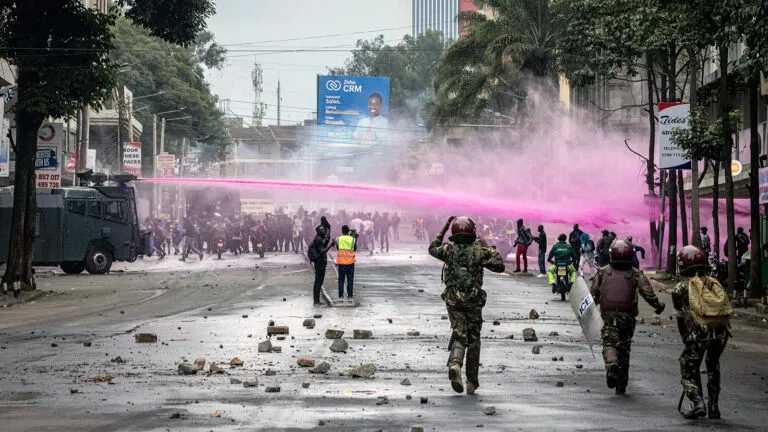Background of the Protests
In recent weeks, Kenyan youth have staged significant protests under the banner of “Gen Z,” demanding comprehensive economic reforms from the government and calling for greater accountability from Christian churches. This movement emerged after the introduction of a controversial finance bill proposed by President William Ruto’s administration.
Rejection of the Finance Bill
In June 2023, the Kenyan government proposed a finance bill that faced backlash from young protesters. The bill was withdrawn by President Ruto on June 26, following a dramatic demonstration by the youth at the parliament. Despite this concession, the protesters have continued to advocate for broader reforms including measures against corruption, impunity, and unemployment, as well as actions to address the rising cost of living.
Calls for Church Accountability
The youth’s discontent extends to the Christian churches, which they accuse of having too close a relationship with the government. According to Rev. Joseph Njakai, an Anglican priest in the Diocese of Mt. Kenya West, this situation represents a “wake-up call” for churches to maintain independence from political influence. The hashtag #OccupyChurches has been used to highlight these concerns.
Rev. Jackie Makena Mutuma, a young Methodist cleric, noted that the economic hardships faced by the youth, exacerbated by government policies and taxes, have fueled their protests. She emphasized the need for churches to be proactive rather than reactive in addressing these issues.
Church and Mosque Support
While some religious leaders have joined the protests and supported the youth movement, others have been criticized for their perceived alignment with political figures. Churches and mosques in Nairobi, such as the Roman Catholic Holy Family Basilica, Anglican All Saints Cathedral, and Jamia Mosque, have provided resources and support to protesters, including housing medical and rescue centers. On July 7, interdenominational memorial and prayer services were held to honor those killed in the protests.
Impact of the Protests
The protests have led to notable responses from the government. President Ruto has signed a law for the reform of the electoral commission and accepted the resignation of the inspector general of police. These actions are seen as steps toward addressing the grievances raised by the youth.
Casualties and Human Rights Concerns
As of July 16, the Kenya Human Rights Commission reports 50 deaths and over 400 injuries resulting from the protests. Human rights groups have criticized the use of live ammunition by police against protesters. Rev. Canon Chris Kinyanjui has condemned the police violence, calling for an end to such practices.
Continuing Demands
Despite some governmental actions, youth leaders like Rev. Jackie Makena Mutuma assert that further improvements are needed. The youth continue to push for additional reforms and clearer responses from both the government and religious institutions.
FAQ
Q: Why did the Kenyan youth protest in June 2023?
A: The protests were in response to a controversial finance bill proposed by the government, which led to demands for economic reforms and greater accountability from both the government and Christian churches.
Q: What were the main demands of the protesters?
A: The protesters demanded reductions in taxes, anti-corruption measures, solutions for unemployment, and actions to manage the rising cost of living.
Q: How did the churches respond to the protests?
A: Some churches supported the youth by providing medical aid and hosting rescue centers, while others faced criticism for their perceived alignment with the government.
Q: What actions has the Kenyan government taken in response to the protests?
A: The government withdrew the finance bill, signed a law to reform the electoral commission, and accepted the resignation of the inspector general of police.
Q: What is the current situation regarding casualties from the protests?
A: As of mid-July 2023, there have been 50 deaths and over 400 injuries reported, with human rights groups criticizing the use of live ammunition by the police.


